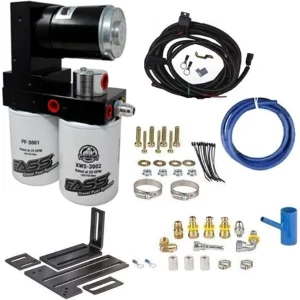The treatment of chest allergies and cough is one of the important things that we should not neglect, as coughing is one of the most negative things that affect the life of the person affected by it completely, and chest allergy is a pathological syndrome.
It is accompanied by persistent cough and shortness of breath, which are the main symptoms of this disease, and chest sensitivity is recognized as a chronic condition according to its different severity, medical history, diseases that accompany it and the extent of response to treatment.
Pulmonary allergy is also defined as a chronic inflammatory disorder associated with airflow obstruction and hyperresponsiveness of the bronchi and may present with recurrent episodes of shortness of breath and coughing.
What is chest allergy?
Treat chest allergies and cough
We know with you on your site that there are different definitions of chest allergies, as the reason for its existence is either due to seasonal allergies, asthma, or the presence of GERD, and chest allergies as a result of a persistent cough for a period of no less than eight weeks.
Chest allergies also occur when a person is exposed to any kind of allergens, as the lining of the airways begins to swell and causes severe infections, causing an increase in mucus secretion inside them, resulting in a sore throat, and from here the infected person begins to cough as an attempt to The body to expel excess mucus and breathe easily.
What are the causes of chest allergies and cough?
In light of the talk about the treatment of chest allergies and cough, we also learn about its causes, which are:
Genetics is an important factor in a person’s susceptibility to allergy chest.
Constant exposure to allergens.
Wrong lifestyle may be one of the causes of chest allergies.
Weakened immune system.
Neglecting to take vaccinations that help protect the body from infection with any bacterial or viral infection.
How is chest allergy and cough diagnosed?
Before we get to know the treatment of chest allergy and cough, we will first learn about some of the recommended methods to be followed to diagnose chest allergy, which are as follows:
Clearly identify the patient’s medical history.
Perform a physical examination of the patient, so that the doctor focuses on careful examination of the upper respiratory tract, skin and chest.
Respiratory measurement to demonstrate obstruction and assess reflexology.
In some cases, you need to have a chest x-ray, in order to rule out other diagnoses.
Do an allergy test.
It should be noted that a correct and proper diagnosis by a specialized doctor greatly helps in early recovery and avoiding complications.

What are the risk factors for chest allergy and cough?
The symptoms that we mentioned above can increase the risk if the patient is exposed to any of these factors:
Excessive exercise.
A person has a viral infection.
An allergic person touches animal fur.
Inhaling dust that is found in the home, such as pillows, mattresses, upholstered furniture, and also carpets.
Passive smoking or tobacco smoking.
Changes that occur in the weather.
Strong emotions such as crying hard, laughing and stress.
The menstrual cycle in women.
Chronic sinusitis.
The condition worsens if the patient suffers from laryngopharyngeal reflux or gastroesophageal reflux disease.
Chest allergies in the elderly
There are many studies that indicate that chest sensitivity and coughing are more common among the elderly, as the incidence of infection increases among people aged 65 years and over, as it is difficult to diagnose chest allergies due to the wrong diagnosis of allergies as an obstructive disease. Chronic pulmonary.
It is also difficult to identify chest sensitivity in people who suffer from some accompanying diseases, including congestive heart failure, as this sensitivity is widely spread in women.
What is the treatment of chest allergies?
Treat chest allergies and cough
We now know about the treatment of chest allergies and cough, as there is often no definitive and definitive treatment for it, because chest allergy is a chronic disease, and it must be lived with and controlled, but it is possible to refer to some anti-inflammatory drugs that help relieve its symptoms, which include the following :
Medical nebulizers, one of the most important and most popular treatments that help patients with chest allergies to breathe in case the crisis worsens.
Corticosteroids. These medications prevent inflammation caused by allergens.
Leukotriene modifiers, which include two montelukast and Lacoste sapphires.
Use of cough suppressants and bronchodilators, as they reduce the severity of the cough and enable the affected person to breathe well.
Cromolyn sodium is used as a preventative treatment before exercising or being exposed to any known allergen.














